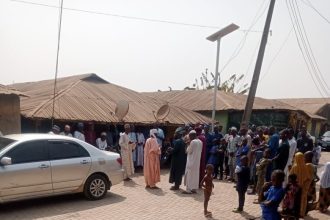In a bold and long-anticipated move, Africa is preparing to launch its own continent-led credit rating agency by the end of September. This initiative, designed to provide more balanced and contextually accurate assessments of African economies, marks a significant step in challenging the long-standing dominance of global rating giants such as Fitch Ratings, Moody’s, and S&P Global.
The African Credit Rating Agency (AfCRA), supported by the African Union’s African Peer Review Mechanism (APRM), is being established to offer an alternative voice in the global credit rating landscape. Its first sovereign credit report is expected to be released between late 2025 and early 2026.
According to APRM’s lead expert on credit ratings, Dr. Misheck Mutize, the recruitment process for AfCRA’s inaugural CEO is nearing completion. A final appointment is anticipated in the third quarter of the year, signaling that the agency is firmly on track to begin operations as scheduled.
The creation of AfCRA stems from a wave of dissatisfaction among African nations, who argue that assessments by Western-dominated agencies often lack nuance and contextual understanding. Critics say that such ratings tend to overemphasize risk and fail to capture the structural transformations taking place across African economies.
“These biased evaluations have not only distorted perceptions but have also contributed to inflated borrowing costs for African governments,” Dr. Mutize noted. “This has had a tangible impact on fiscal space and development financing.”
Just last week, APRM openly criticized a decision by Fitch to downgrade the African Export-Import Bank, calling the move flawed and rooted in a fundamental misunderstanding of how African financial institutions are governed. Fitch, in response, maintained that its assessments adhere to globally uniform and transparent rating methodologies.
Nations like Ghana and Zambia, both of which have faced debt default crises in recent years, have been especially vocal in calling for reforms to the global credit ratings ecosystem. They argue that the current framework unfairly punishes African economies by failing to account for local realities and resilience strategies.
Despite being a continental initiative, AfCRA is purposefully designed to operate independently of African governments. Dr. Mutize emphasized that the agency will not be state-owned, in a bid to preserve credibility and eliminate any perception of political interference. Ownership will primarily lie with private-sector actors across Africa, though specific stakeholders have not yet been named, as discussions are ongoing.
The financial architecture supporting AfCRA’s development is also being coordinated by MCB Capital Markets, the investment arm of Mauritius’s largest banking institution, which serves as the transaction adviser.
One of the agency’s first objectives is to prioritize local-currency debt ratings, a move that could stimulate deeper domestic capital markets and reduce overreliance on foreign-denominated borrowing. This approach aligns with broader efforts to strengthen financial sovereignty and economic resilience across the continent.
However, AfCRA’s leadership insists that the agency’s independence will be matched by its integrity. Dr. Mutize was clear in dispelling any assumptions that the agency would serve as a cheerleader for African nations. “It is important to debunk the assumption that AfCRA is being established to give favourable ratings to Africa—no,” he said. “We are committed to delivering rigorous, transparent, and credible evaluations that accurately reflect both risks and opportunities.”
The launch of AfCRA is widely seen as a milestone in Africa’s journey toward reclaiming narrative control over its economic destiny. It also signifies a growing recognition that global financial systems must evolve to become more inclusive and responsive to emerging markets.
As global economic uncertainty persists and debt sustainability becomes an urgent concern worldwide, the emergence of AfCRA may herald a new era in how African economies are assessed—and understood—on the world stage.




